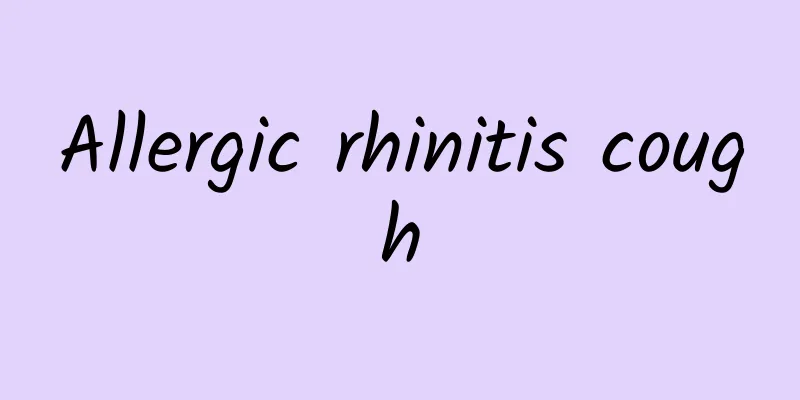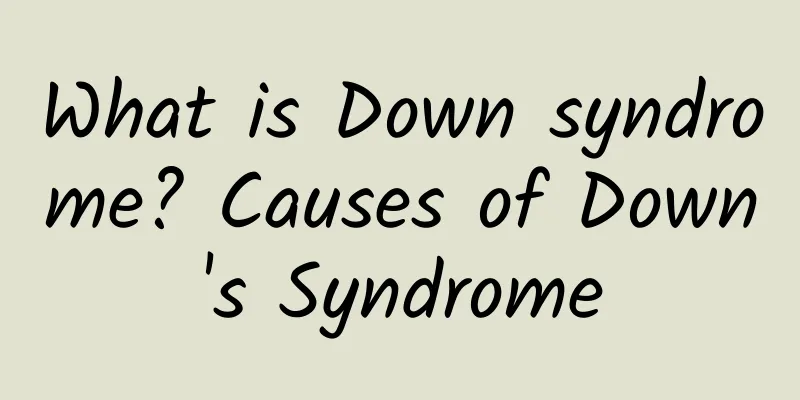Allergic rhinitis cough

|
There are many factors that lead to rhinitis. One type of rhinitis is caused by the patient's exposure to allergic substances. It is clinically called allergic rhinitis. Its occurrence is related to the patient's own constitution and family genetics. Although allergic rhinitis will not affect the patient's life, it will still cause more serious pain to the patient when it occurs. However, if allergic rhinitis is accompanied by cough symptoms, the harm will be more serious. This is what is often referred to as allergic rhinitis cough in clinical practice. It is a combination of two diseases and will cause more serious harm to the patient's body. Specific allergic rhinitis cough symptoms and hazards include: Allergic rhinitis cough, also known as cough variant asthma, is a special manifestation of asthma. It is characterized by persistent or recurrent cough for more than one month, often accompanied by paroxysmal cough at night or in the early morning, with little sputum, aggravated by exercise, no clinical signs of infection, or ineffective antibiotic treatment for a long time. Treatment with bronchodilators can relieve cough attacks, and there are often personal or family allergies. The treatment for allergic cough is the same as that for asthma. The principle is to eliminate the cause, control attacks and prevent recurrences. If the patient also frequently experiences "cold" symptoms without fever, such as sneezing, runny nose, itchy nose, itchy eyes, etc., especially if there is a personal history of allergies such as eczema in infancy, more attention should be paid to the presence of allergic cough. Like any allergic disease, allergic cough has another major characteristic: it will recur and become difficult to cure with changes in climate, environment, and lifestyle. Allergic constitution caused by genetics. Not everyone will suffer from allergic rhinitis. It usually occurs only in people with allergic constitution. Allergic constitution is related to genes and is usually caused by heredity. Most patients with allergic rhinitis have a family history of allergies, but in recent years, due to the accelerated industrialization process and the intensification of air pollution, some people who originally had non-allergic constitutions have also developed allergic constitutions. Now that you know the symptoms and dangers of allergic rhinitis cough, if you are prone to allergies, in order to avoid allergic rhinitis cough, it is recommended that you pay attention to avoid contact with allergens as much as possible in normal times. It is best not to keep pets at home. In spring, you should also try to reduce going out, and wear a mask as much as possible when going out. |
<<: Low alanine aminotransferase
>>: How to treat allergic asthma
Recommend
What to do if the temple is too narrow? You can use hyaluronic acid to fill the temple
If the temples are narrow, it does not look good....
Can Lingzhi lower blood pressure?
Ganoderma lucidum can lower blood pressure, but t...
Fluid that leaks from the penis after erection
Many men find that some fluid flows out of the pe...
How to enlarge breasts during pregnancy and seize the good opportunity for secondary development
Anyone who has been pregnant knows that their bre...
What should I do if I have stomach cramps?
Everyone may experience stomach pain in life. Sto...
Acupuncture treatment of cervical spondylosis is very effective
Due to work reasons, most people usually face com...
What are the symptoms of gastrointestinal inflammation?
We all know what kind of disease "getting an...
What is the effect of fumigating the room with mugwort
Fumigating the room with mugwort is also a good h...
How to take Gastrodia elata and Panax notoginseng in proportion
Panax notoginseng and Gastrodia elata are traditi...
What is the role of potassium permanganate
Potassium permanganate, also known as potassium p...
Swelling inside the anus
Regular bowel movements every day are good for th...
What to do if the tooth is swollen
Many people have experienced swollen and painful g...
Can Purslane cure skin diseases?
Purslane is a common ingredient with a variety of...
Which tea is better for cleansing the intestines and detoxifying? Which tea is better for cleansing the intestines and detoxifying?
Many people are troubled by why they get acne for...
What medicine is suitable for fungal infection
Fungal infections often occur in our daily lives ...









